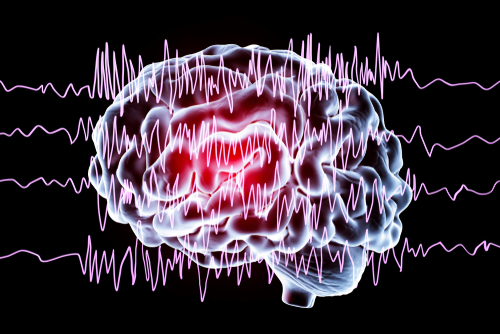Traumatic brain injury (TBI), as explained by the American Association of Neurological Surgery “is a disruption in the normal functioning of the brain that can be caused by a blow, bump or jolt to the head, the head suddenly and violently hitting an object or when an object pierces the skull and enters brain tissue.” A traumatic brain injury can come in many different forms. The following four types are examples of some of the most common TBIs:
- Concussion: also referred to as a mild TBI, occurs when one’s brain moves and hits inside one’s skull, resulting in bruising. Concussions are the most common type of TBI. In America, as many as 3.8 million concussions occur each year, and nearly half of concussions that occur go undetected and untreated.
- Intracranial hematoma: forms when a head injury causes blood to accumulate within the skull. It can occur within brain tissue or beneath the skull, which in turn presses on the brain.
- Skull fractures: can occur in the cranial vault (the space that encases and protects the brain) or skull base (bottom part of the skull). Thin fractures are typically closely monitored, whereas depressed fractures or fractures that are leaking cerebrospinal fluid (the clear, colorless, watery fluid that flows in and around the brain and spinal cord) require surgical intervention.
- Diffuse axonal injury (DAI): Diffuse axonal injury is the shearing (tearing) of the brain’s long connecting nerve fibers (axons) that occurs when the brain is injured as it shifts and rotates inside the skull. These tears can range from quite large to microscopic, producing varying degrees of brain damage.
For some, a TBI may only affect the exact location on the brain where the injury occurred, while for others a TBI could also affect surrounding tissues and cause damage to one’s brain in other areas apart from the initial site. The specific symptoms that manifest because of a TBI will differ significantly, as they depend on the type of injury, the severity of the injury, as well as the area of the brain that was injured. Further, some TBI symptoms may appear immediately and dissipate rather quickly, while others may present several days or weeks later, and some experienced symptoms may evolve over time.
For Information and Support
If you are concerned for yourself or a loved one regarding substance abuse and/ or addiction, we recommend reaching out for help as soon as possible. If left untreated, substance abuse can result in long lasting and potentially life-threatening consequences. Keep in mind: you are not alone! There is an entire network of professionals that are available to help and support you and your loved one throughout the recovery process. The earlier you seek support, the sooner your loved one can return to a happy, healthy, and fulfilling life.
Please do not hesitate to reach out with any questions regarding our specific program at Haven House Addiction Treatment and/ or general substance abuse and/ or addiction treatment related information. Our highly trained staff is readily available to discuss how we might best be able to help you and your loved one. We can be reached by phone at 424-258-6792. You are also welcomed to contact anytime us via email at admissions@hhtxc.com.



